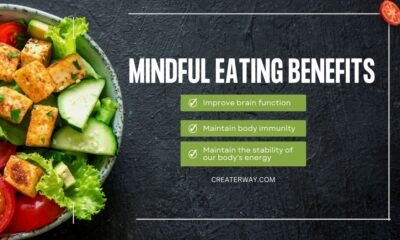FOOD
IS JUICE HEALTHIER THAN EATING WHOLE FRUITS OR VEGETABLES?

IS JUICE HEALTHIER THAN EATING WHOLE FRUITS OR VEGETABLES? Juicing has gained popularity as a quick and convenient way to consume fruits and vegetables, promising numerous health benefits. However, the question remains: Is juicing healthier than eating whole fruits or vegetables? We will explore the advantages and disadvantages of both methods, shedding light on the nutritional and practical aspects of juicing.
Nutrient Retention
One of the primary concerns with juicing is nutrient retention. When fruits and vegetables are juiced, their fiber content is often removed, leaving behind concentrated liquid. While this can be beneficial in some ways, it can also result in the loss of certain essential nutrients. Fiber, for instance, plays a crucial role in digestion and helps regulate blood sugar levels. When you consume whole fruits and vegetables, you get the benefit of both nutrients and fiber.
Digestibility
Juicing can make nutrients more readily available to the body. The process of juicing breaks down the cell walls of plants, making it easier for the body to absorb the nutrients. This can be particularly advantageous for individuals with compromised digestive systems or those who struggle to eat enough fruits and vegetables in their whole form. However, for people with healthy digestive systems, the slower absorption of nutrients from whole foods can be beneficial, helping to maintain stable energy levels and prevent blood sugar spikes.
IS JUICE HEALTHIER THAN EATING WHOLE FRUITS OR VEGETABLES?
Caloric Intake
Juice can be calorie-dense due to the concentration of natural sugars found in fruits. Consuming large quantities of fruit juice without considering its calorie content can lead to weight gain. Whole fruits and vegetables, on the other hand, are less calorie-dense and provide a feeling of fullness due to their fiber content, making it easier to control calorie intake.

Sugar Content
Fruit juices can contain a significant amount of natural sugars, which can contribute to spikes in blood sugar levels. When whole fruits are consumed, the fiber they contain slows down the absorption of sugars, helping to regulate blood sugar. People with diabetes or those looking to manage their sugar intake should be cautious when consuming fruit juices.
Phytonutrients
Fruits and vegetables are rich in phytonutrients, which have been associated with various health benefits, including reducing the risk of chronic diseases. Many of these phytonutrients are found in the skin and flesh of the product. Juicing often removes these parts, potentially leading to a loss of some phytonutrients. Eating whole fruits and vegetables allows you to benefit from the full spectrum of phytonutrients.
Hydration
Juicing can be an effective way to stay hydrated, especially for individuals who find it challenging to drink enough water or prefer the taste of juice over plain water. The water content in fruits and vegetables contributes to hydration, making freshly squeezed juices a hydrating option.
Convenience
Juicing offers undeniable convenience. It’s a quick way to consume a variety of fruits and vegetables in one glass. This can be especially appealing for busy individuals who may not have time to prepare and eat whole foods. On the other hand, whole fruits and vegetables require minimal preparation and are easily portable for snacking on the go.
READ MORE WITH US AT HOW IS FOOD TRANSPORTED IN PLANTS



















